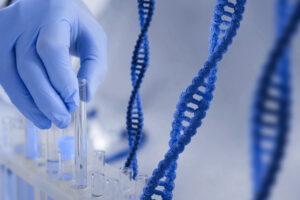You will receive injections of fertility drugs that stimulate, or wake up, your ovaries and help more than one egg develop each month. You may also take medicines to delay ovulation.
Preparing your body for fertility treatments is very important. You can prepare your body for IVF treatment by eating a balanced diet and getting plenty of sleep. Avoiding smoking, recreational drugs and excess caffeine can improve your chances of conception.
Physical Examination
At your first fertility appointment, you’ll undergo a physical examination. You’ll undress from the waist down and lay on a padded table in your doctor’s office. Your doctor will place a small instrument into your vagina called a speculum. They will also insert a syringe into your uterus that holds one or more embryos.
Your doctor will perform tests and a review of your medical history to determine the cause of your infertility. You might need to get a pelvic ultrasound, blood work and imaging tests, as well as a test to measure sperm count and morphology for your partner.
If the problem is with your ovaries or fallopian tubes, a hysteroscopy might be necessary. Your doctor will use a thin tube with a camera attached to examine your uterus, ovaries and fallopian tubes. Surgery to remove polyps, scar tissue or some fibroids can improve fertility, as can removing endometriosis from the uterus. Some conditions such as pelvic adhesions or larger fibroids can be treated with laparoscopic surgery using tiny cuts in the stomach area.
During fertility treatment, you’ll take many medications. Some, like birth control pills, can interfere with the success of fertility treatments. Other medications can be used to stimulate ovulation and increase the chances of getting pregnant. You’ll need to bring a list of all medicines, vitamins, herbs or supplements that you are taking and the doses you take them at.
Blood Tests
Blood tests help the doctor find out what’s causing fertility problems. They can be done in the clinic by a hematologist, an endocrinologist or other doctor who treats fertility issues. The patient should fast for 8 hours before these tests.
The first test is called a fasting blood sugar (FBS) test, which measures the level of glucose in the blood. It is a useful test to see if diabetes or high blood sugar is affecting a woman’s fertility. A rubella immunity (MMR) test is also done to ensure the patient has immunity to rubella, which can cause serious birth defects in a baby.
Another common blood test is an anti-mullerian hormone (AMH) test, which is a marker of ovarian function and egg reserve. A low AMH is an early sign of decreased fertility. The doctor may also check the levels of progesterone in the blood. This female hormone helps prepare the uterus for an egg to implant.
The doctor may do other blood tests to look for antibodies that attack sperm or the lining of the uterus. They can find if there are underlying problems that need to be treated, such as polycystic ovarian syndrome or a thyroid disorder. Some patients need a hysterosalpingogram or laparoscopy to look at the pelvic organs (uterus, fallopian tubes and ovaries) through a thin lighted scope put in the belly. The doctor can also remove a sample of the lining of the uterus to look for cysts, scar tissue or infection that can affect fertility.
Eating a Healthy Diet
Eating a healthy diet is one of the most important things you can do to prepare for fertility treatments. This is because the food you eat provides the nutrients needed to produce hormones, enzymes, blood and other essential building blocks for a pregnancy.
The type of diet recommended to help fertility treatments work includes high fiber, low sugar and limiting high fat foods, especially those that contain artery-clogging trans fats. Instead, choose heart-healthy unsaturated vegetable oils such as olive and canola. Choose lean meats, fish and a variety of vegetables and fruits. A diet rich in omega-3 fatty acids and folic acid is also helpful.
If you are not able to get enough protein from the foods you eat, it is fine to include some meat. However, it is a good idea to choose seafood that is low in mercury and avoid cured or processed meats. Vegetable proteins are the best source of protein and are high in folic acid and other nutrients that aid fertility.
It is also important to make sure you are getting enough iron. Ensure that you are not deficient by eating foods such as whole grains, nuts, legumes (chickpeas, black beans and lentils), kale and spinach. You can also include fortified breakfast cereals and milk, or take an iron supplement if you are concerned about your levels.
Getting Plenty of Sleep
When trying to conceive, getting plenty of sleep is extremely important. This is because sleeping cycles have a direct impact on your hormone levels. For example, during lighter stages of sleep, your body releases a set of hormones that trigger ovulation. If these hormones are not released regularly, it can be difficult to conceive.
In fact, research has shown that women who get seven to eight hours of sleep per night have IVF success rates that are 25% higher than those who sleep less. Insufficient sleep may also impact a woman’s ability to have a successful pregnancy because it disrupts the hypothalamic-pituitary-adrenal (HPA) axis, which is partially responsible for regulating reproductive hormones and follicle development.
If you have trouble sleeping, try to stick with a consistent bedtime and wake time each day. Also, limit caffeine and alcohol to help you fall asleep at night. Try to unplug from electronics at least an hour before bedtime and do something relaxing, like taking a warm bath or reading a book.
Getting enough sleep and consuming a healthy diet are essential steps in the process of preparing your body for fertility treatments. It is also a good idea to incorporate moderate amounts of physical exercise into your daily routine, especially during IVF. This will help increase circulation, balance your hormones and decrease stress.





